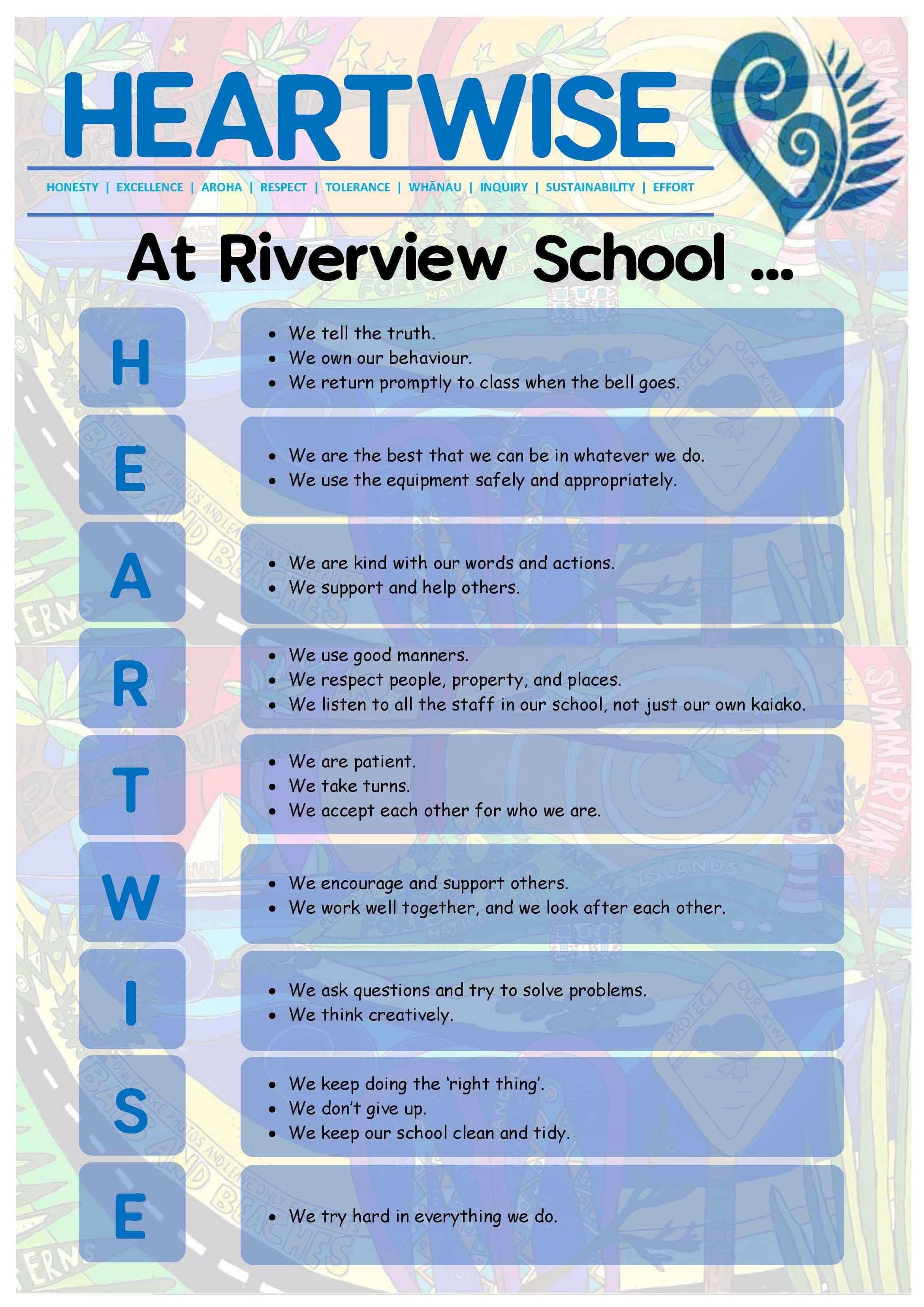Learning for Life at Riverview School
PR1ME Maths
PR1ME Mathematics is a world-class programme, based on the effective teaching and learning practices of Singapore, the Republic of Korea, and Hong Kong (consistently top performers in international studies). The programme, a collaboration between Singapore’s Ministry of Education and Scholastic Education, is designed to give schools outside of Singapore, the benefit of the world-class curriculum and teaching/learning experiences used in Singaporean schools.
The programme uses concrete (equipment), pictorial (pictures), and abstract models (e.g. 2+1=3) of representations to support mathematical learning, following well-researched and tested progressions that continually reinforce prior learning, thus maximising retention. It is a text-based programme, not a textbook programme, consisting of three books that are used in conjunction with each other: the Teacher’s Guide (planning and instruction guide), Course Book (buddy or independent learning), and a Practice Book (specifically-designed, independent, follow-up activities).
https://www.scholastic.co.nz/schools/education/prime-maths/
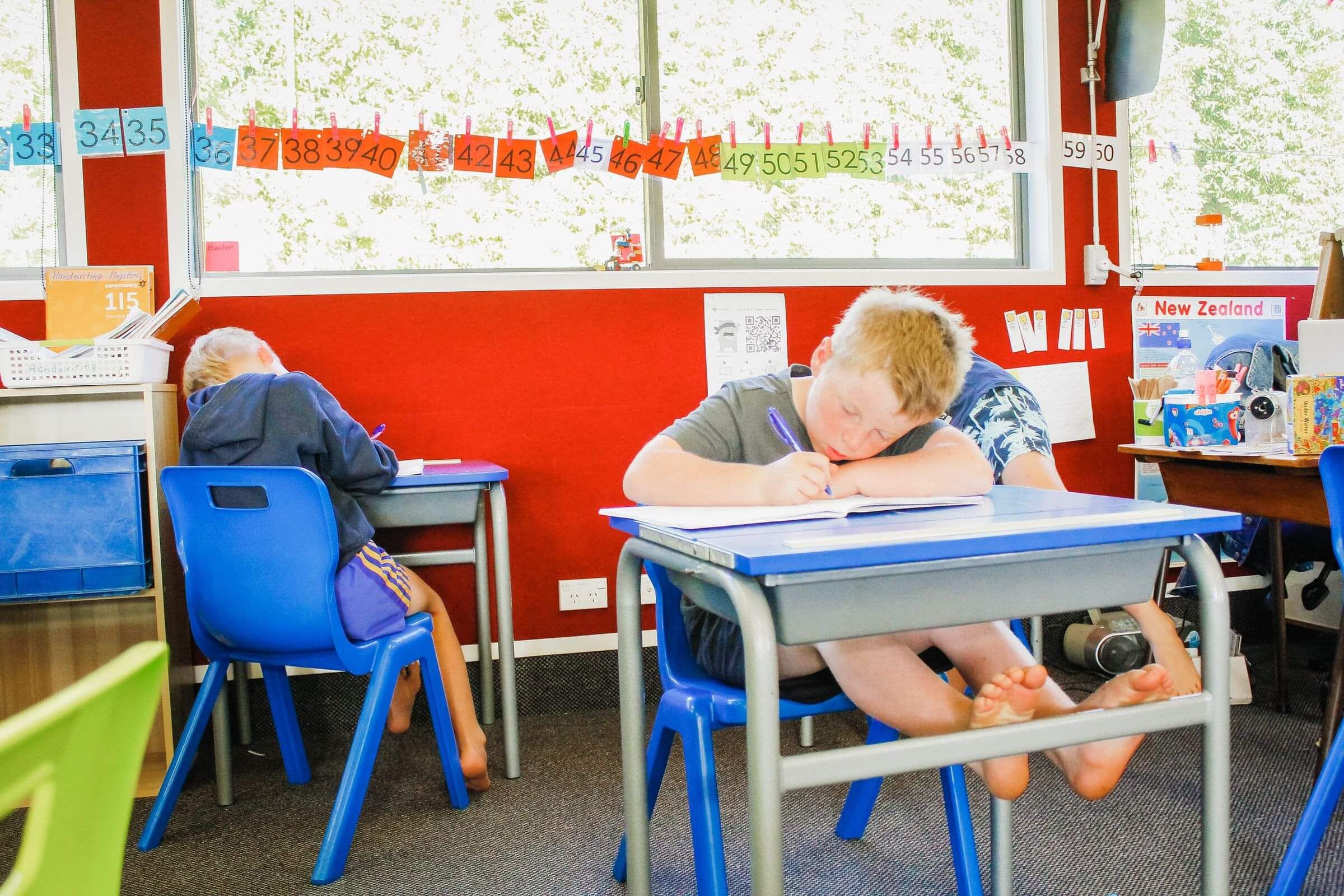
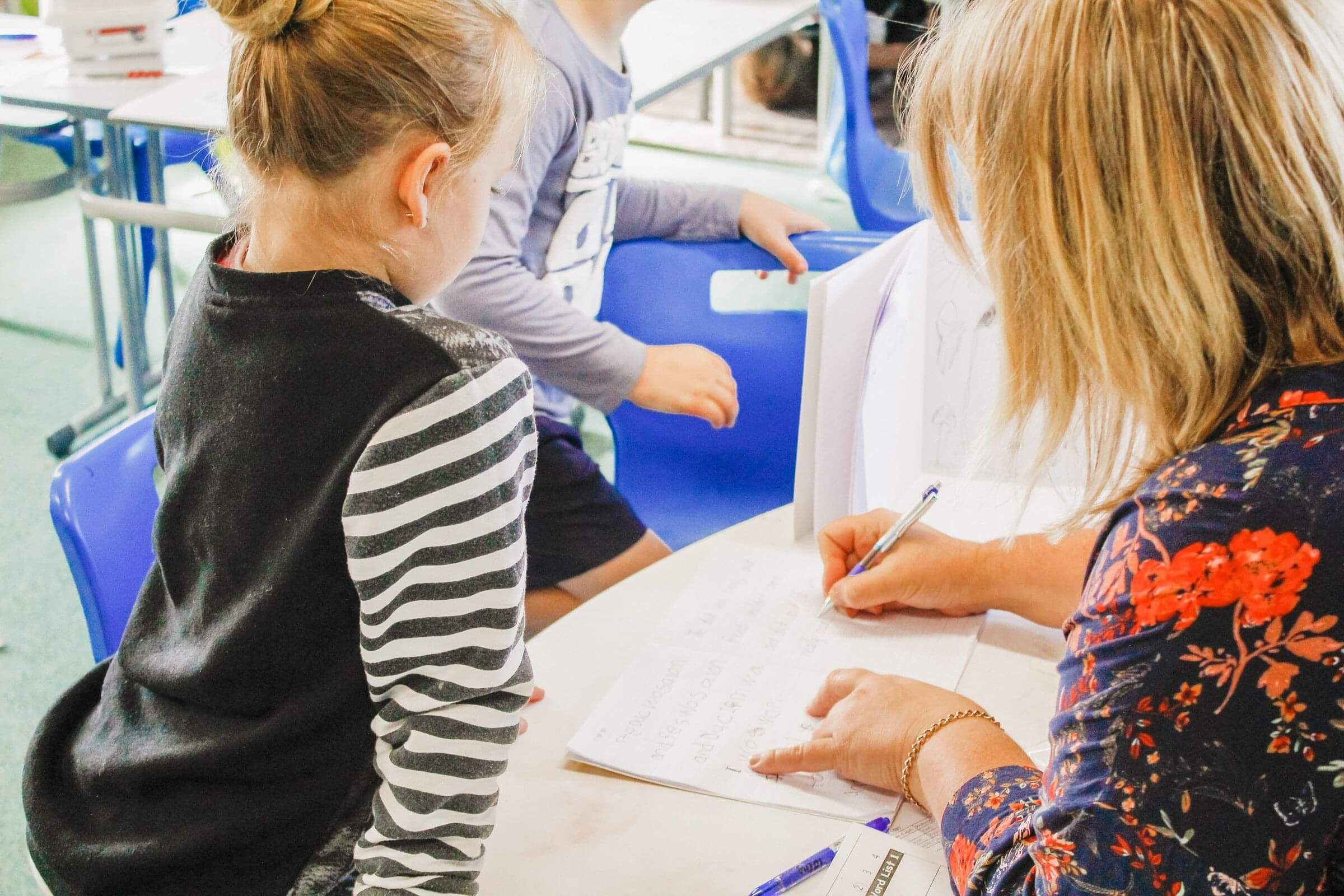
Structured Literacy:
Better Start to Literacy (BSLA)
Years 1 - 3
iDeaL Years 4 - 6
The Better Start Literacy Approach is a structured approach to literacy instruction for Year 0 to Year 3/4 classrooms, to support children's early reading, writing and oral language success. It has been developed by our team specifically for our New Zealand educational and cultural context and controlled research trials have proven its effectiveness. It includes the systematic teaching of critical phonological awareness skills and letter sound knowledge skills through fun, games-based activities, activities making explicit links to the reading and spelling context, and structured small group reading sessions using the new Ready to Read - Phonics Plus early readers series. In addition, the approach includes explicit teaching in vocabulary skills and in building children's oral narrative and listening comprehension skills through quality children's story books. The Better Start Literacy Approach follows a structured phonics scope and sequence that is used in the class and small group reading teaching.
https://www.betterstartapproach.com/
The iDeaL Approach bridges research and practice to support literacy development across all year levels and tiers. Grounded in the science of reading and the principles of Structured Literacy, it provides educators and specialists with the tools, strategies, and assessments needed to deliver high-quality, aligned instruction.
Positive Behaviour for Learning - School-Wide
The Positive Behaviour for Learning School-Wide framework, also known as PB4L School-Wide, is helping New Zealand schools to build school cultures where positive behaviour and learning is a way of life. Essentially, it is a plan which enables the goals of the school to be achieved, especially the learning goals.
PB4L School-Wide looks at behaviour and learning from a whole-of-school, as well as an individual child’s, perspective. Although the framework is based on international evidence, it is tailored to our school’s environment and cultural needs.
It’s not about changing the students; it’s about changing the environment, systems, and practices that are in place to support the students to make positive behaviour choices.
PB4L School-Wide is based on the Positive Behavioural Interventions and Supports (PBIS) framework developed at the University of Oregon in the 1990s. PBIS is now in thousands of schools across the US and there are over 1050 PB4L-SW schools in New Zealand, including Riverview School.
The framework is evidence based and uses our school’s HEARTWISE Values to teach and acknowledge appropriate behaviour. For each Value and location in the school, there are associated expectations which are described in this matrix. The ‘umbrella’ Everywhere expectations are standard for all locations.
For further information about the framework, visit https://pb4l.tki.org.nz/PB4L-School-Wide
Other programmes that Riverview School offers.
Launchpad (Bible in Schools)
We have a team of people from our local community that provides a weekly 30-minute Christian Values education session each Monday during lunchtime. On your enrolment form, please indicate if you would like your child to attend.
Cool Schools – Peer Mediators
Cool Schools is a programme designed by the Peace Foundation to foster positive relationships and conflict resolution in schools. Students are trained to help other students solve minor playground disputes themselves through mediation. The senior students, who are selected and trained to help other students, work in teams of three. These Peer Mediators not only help with conflict resolution at school but also become equipped with valuable skills for handling conflicts in their own lives outside school.
The students are identified by their bright yellow vests and clipboards and are available to talk to students each day at break times. If the conflict is too serious for children to deal with, they are trained to refer the issue to a duty teacher.
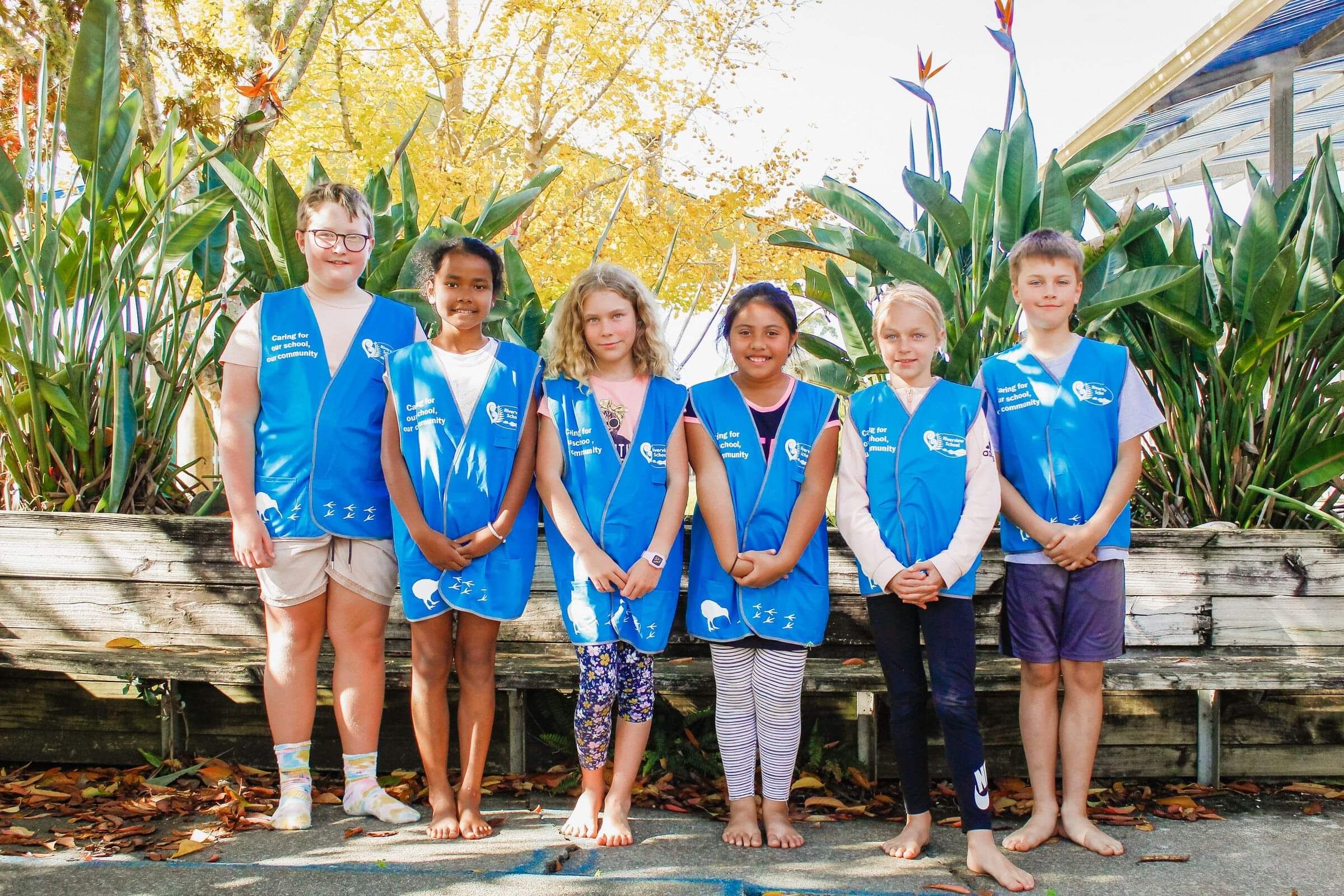
Enviroschools / Eco-Warriors / Litter Busters
Riverview School is an Enviroschool. This means that we undertake learning programmes in, about, and for the environment, and try to give our students learning experiences in the natural environment. We also seek out opportunities to contribute to a sustainable future.
All our students are encouraged to take an active role in protecting our environment. We have a dedicated team of students, called the Eco-Warriors, which is actively involved in leading the school in environmental issues. We also have a junior group of students called the Litter Busters.
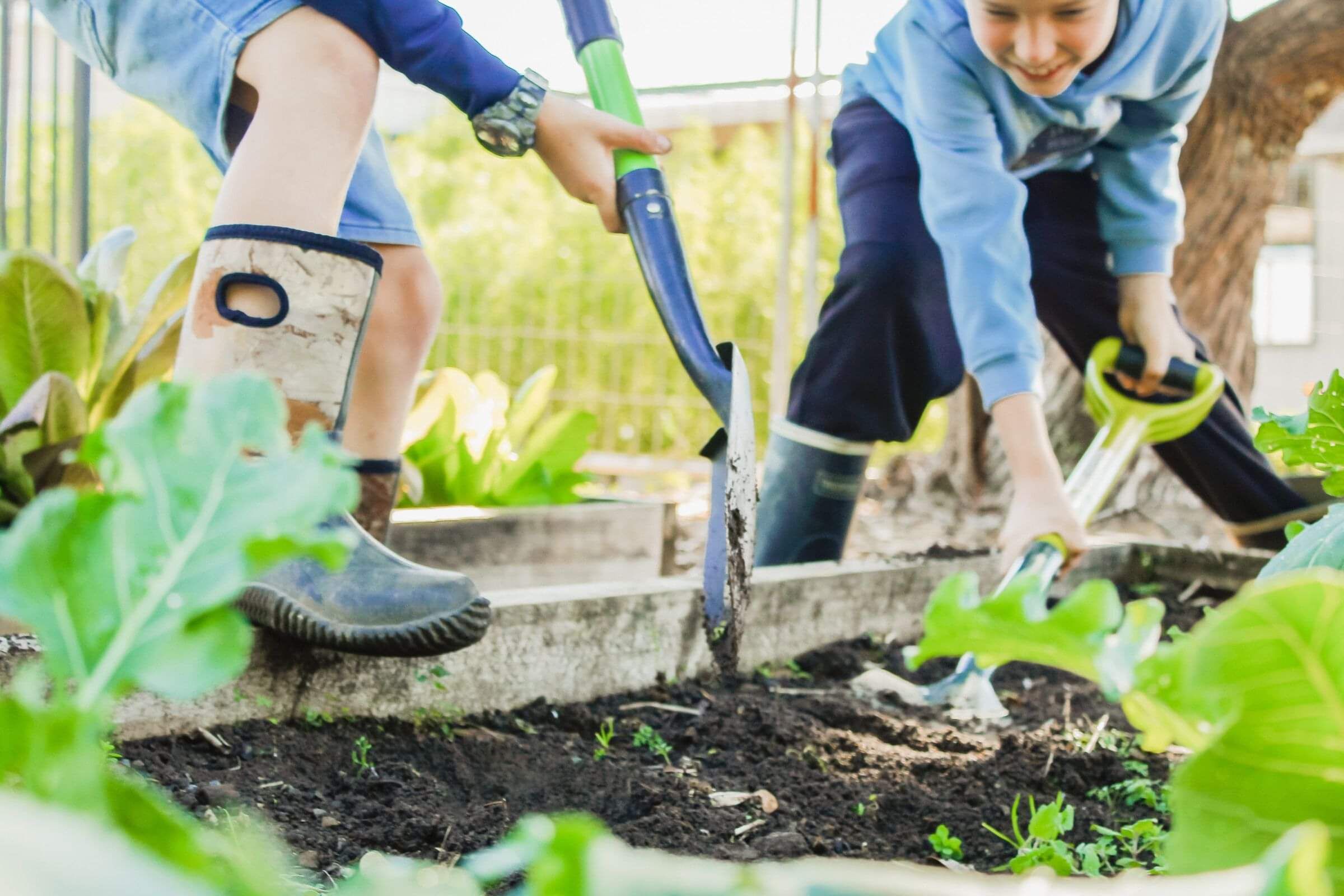
Garden to Table
The Garden to Table programme is based on the Stephanie Alexander Kitchen Garden Programme in Australia, in which primary-aged children grow, harvest, prepare and share fresh produce from their school vegetable garden.
The Year 4 students work either in the garden or the kitchen, and then sit down together to share the meal.
Kapa Haka
We are proud of our Kapa haka group which performs with distinction at various times during the year. Ngāti Rēhia support our Kapa haka group, and your support and help is welcomed. All students take part in weekly Kapa haka sessions in their teams.
Lexia Reading
The Lexia Reading Programme is a computer-based personalised learning programme, used to accelerate a child's reading skills development. Some of the skills that the programme focuses on are phonemic awareness, spelling, and grammar.

The Arts
In The Arts, ākonga/learners will participate in, and develop literacy in, dance, drama, music, and the visual arts, and be encouraged to develop a lifelong interest in The Arts. Through this, they will have opportunities to discover their personal talents in The Arts.
Te Reo Māori me ngā Tikanga Māori
At Riverview School, Mrs Leone Cooper teaches each Year 2, 3, and 4 class a 25-minute te reo Māori lesson each week. The Years 5-6 classes have 40 minutes of te reo Māori instruction. This is supported in class by the teachers’ use of te reo to practise what has been introduced and taught. We aim to build vocabulary and knowledge, and to be able to have simple conversations. Each child is also supported to research, learn, and present their pepeha. Learning is done through collaborative and independent hands-on activities that require ākonga to speak, listen and respond with each other, as well as reading and writing using simple sentence structures. The aim is to build on prior learning in a supportive environment.
English for Speakers of Other Languages (ESOL)
At Riverview School, we provide opportunities for ākonga/learners (for whom English is not their first language) to learn English in an environment that acknowledges and cares about their culture and heritage, and which fosters the development of skills in academic and social communication. Classroom programmes will be modified to cater for needs, and to ensure that the ākonga/learner can participate fully in all classroom activities.
Special Needs
We are able to access the support of the Resource Teacher of Learning and Behaviour (RTLB), the Resource Teacher of Literacy (RTLit), the Northland Health Camp, and Group Special Education (GSE) for students about whom we (or their parents) have concerns. These services operate only on referral from the school (with the parents’ consent) and, because of their workloads, usually deal only with extremely urgent or serious referrals – often after time spent on a long waiting list. The school SENCO (Special Education Co-ordinator), Mrs Sarah Hallgarth, is usually involved with this.
Keeping Ourselves Safe
Constable Rob delivers the Keeping Ourselves Safe programme. Students will learn:
how to work out when their safety is at risk
how to keep safe when they meet and mix with other people
who and how to ask for help if they, or someone they know, is being abused
to go on asking for help until someone does something to stop the abuse
that it is important to make and follow personal, family and school safety rules.
They will know:
that abuse is never okay
that abuse is never their fault.
There is more information about the programme to be found here:
